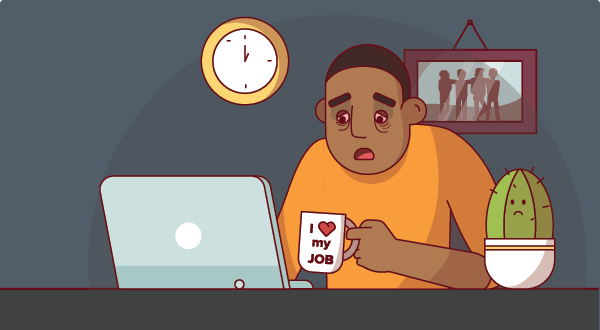Wil Schroter

Growing slowly is the fastest way to build a sustainable startup.
From the outset that sounds like a contradiction, right? How could "growing slowly" and scaling possibly be congruent? They are if we take the time to understand that scaling is only possible once we've identified the assumptions in our business that are actually true.
As it happens, most Founders don't realize that "growing slowly" isn't about the long-term growth curve of a startup, it's about the near-term growth curve, the part where we are still trying to figure out exactly how this thing works.
Amplifying Mistakes With Acceleration
The case for acceleration is that we'll get to where we need to be faster. But that rests on one (often) broken assumption — that we're accelerating on the right path. Imagine we're in a car, and the car is pointed just 5 degrees off the centerline of the road. When we stomp on the gas, it's going to feel like we're getting to our destination faster, but what we're about to do is actually run ourselves clear off the highway and crash — just a lot faster.
What we lose sight of in our formative years is that we're still testing a boatload of assumptions at pretty much every possible level. We're trying to figure out if this is the right team, with the right product/market fit, with the right pricing, and optimized marketing. By the way, all of those are probably wrong right now.
The only thing we can truly mess up right now is accelerating the pace at which we've made horribly wrong assumptions. Most assumptions can often be tested at a well-paced jog without having to do a suicide sprint to know we're heading in the wrong direction. Time gives us the option to make a ton of adjustments to put us on the right path, whereas acceleration removes our ability to maintain control of our direction.
We Need Time to Make Mistakes
Let's assume that right this minute nearly every decision or assumption we have made is wrong, not because we're incompetent, but just because over time we'll find out what's true or not. When we start off by assuming we're wrong, it provides just the right amount of caution we need to focus on testing versus accelerating.
If we understand that most of our assumptions are wrong, then we want time to prove them right. We want to make our mistakes on a small scale before we've blown through not only capital but the most vulnerable equity we sold off to get it.
This isn't about being gun shy either, it's simply about being mature enough as a Founder to know that we need to let the product and the organization evolve a bit until we're ready to take it to the next level. It's about knowing that all of our assumptions are wrong, and the only way we can fix them is by having enough time to let them play out.
Time is a Lot of Money
Every time we over accelerate on a broken assumption, we exponentially waste money. Imagine the cost of hiring 10 engineers only to find out that what they were building wasn't what the market wanted. Or blasting through a few million of hard-raised capital on marketing only to find out our pricing was way off the mark.
We've got to isolate our assumptions and not only apply a cost metric of capital, but as importantly, a cost metric of time. It's so easy to be impatient, and let's face it, we're not known collectively as a patient bunch! But our impatience in the early days can be our most costly liability because we keep jumping down paths before we scope them out for potential traps.
On the other hand, there is a time to grow quickly — when we have taken the time to figure out WTF actually works! At that point, we begin to work on the opposite scale, whereby the cost of not scaling or capitalizing has a negative effect. But there's a 99% chance we aren't there yet. We have too many things unproven, and our lack of patience is probably at the top of that list!
In Case You Missed It
Why We Plan Our Entire Business in 5-Day Sprints The problem with creating longer planning cycles is that every additional day, week, or month decreases the visibility and accountability for a single day of work. There's an incredible amount of magic in having very little time to get things done.
Don’t Work Long Hours, Work Efficient Hours. As Founders, we should stop being "long hours" champions and instead start being proud of how much we can do in as few hours as possible.
How Much Should I Be Working? (podcast). Wil and Ryan take a deep dive into the benefits of thinking quality and not quantity when it comes to your weekly punch card.
Find this article helpful?
This is just a small sample! Register to unlock our in-depth courses, hundreds of video courses, and a library of playbooks and articles to grow your startup fast. Let us Let us show you!
Submission confirms agreement to our Terms of Service and Privacy Policy.
Already a member? Login
Start a Membership to join the discussion.
Already a member? Login

But this thing can also ruin your startup. You need to pick an aggressive approach just like as mailpro https://www.mailpro.com/ to maintain your startup.